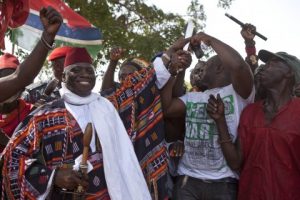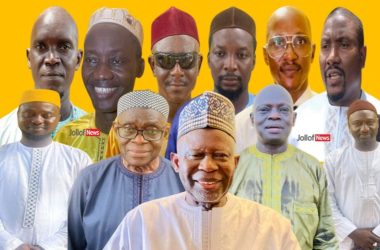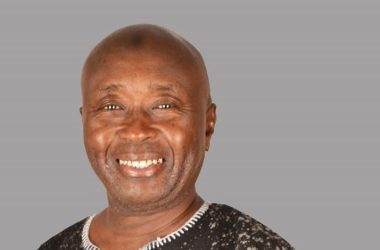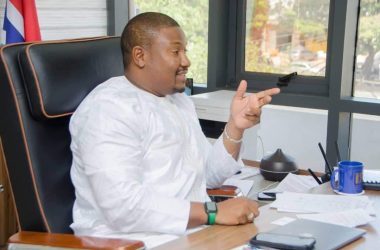
Who is not guilty?
It is also essential to recognize that every community, in every corner of The Gambia, has accumulated guilt during Jammeh’s 22-year rule. Some of us are guilty of being silent, some because they voluntarily work for him in positions of responsibility (or did so at one time or the other) and others because they support (or did so at one time or the other) his policies, either in public or private.
The statistics are easy to compile; just look at the official list of Ministers, Permanent Secretaries, Directors and army officers since 1994 or simply look at the old editions of The Daily Observer and other local papers. The old tapes and videos of GRTS would be revealing too. For those who wish to be more thorough on the violence side, please look at the list of political prisoners, killings, arrests, etc, and compile the names, in each case, of those who actually carried out the orders, if you can.
The results would reveal what should be obvious: Jammeh’s supporters, past and present, can be found in all Gambian communities from Banjul to Basse, Cape to Cairo, York to New York. If we have to go for the truth, which is our right, then we must go for the full truth and not half-truths and everyone should honestly ask himself/herself: “Did I ever do anything wrong for Jammeh or condone anything that he did wrong?”
Some terrible things have indeed happened in mainland Africa’s smallest country for 22 years! In a country of less than two million (the fifth smallest on the mainland), with intense social interaction, where most people know each other or are related directly or indirectly, the best way for reconciliation is not to rush and point fingers. If you point one finger to someone, the rest may be pointing at yourself and others close to you.
What can we do?
Based on the above, I would, first and foremost, advise that ”tribalism” must never be tolerated in The Gambia. No one can claim to be better than Jammeh if he hurls a “tribalistic” insult at you and you hurl it back at “the Jolas”. We should never hound the Jolas, in particular, because we do not want to prove Jammeh right and because the army is still in their hands. Similarly, no one can be better than Jammeh if you preach the violence that you accuse him of. The only way to revive the Gambian culture of accommodation and tolerance is to judge wrong doers as individuals rather than tribes or regions and, even better, to forgive each other as much as possible. Gambians must not forget Mandela so soon. We must not forget that Mandela suffered longer than the length of Jammeh’s rule, under rulers truly Bechuanan to blacks.
Secondly, military intervention must be avoided as much as possible. Senegal seems keen to intervene militarily. Many Gambians are angrily urging them to do so, quickly, forgetting the history of Senegalese intervention in the Gambia (1981, when The Gambia did not have an army) and Guinea-Bissau (1998, when Senegal was accompanied by Guinea). The Senegalese are our brothers and sisters and they should be our first port of call when we are in trouble. However, Senegal has very serious scores to settle with Jammeh and the rebels of Casamance, which may serve as strong motivations for the barrel of the gun. Abundant historical and contemporary evidence show that military intervention is always easier than the management of its consequences.
As I write this article on December 13th, a part of my conscience is pulling me away from The Gambia, our homeland. I can hear the cry of thousands of voices, the soft innocent voices of children I do not know. They make me feel like forgetting my own problems in our beloved Gambia and to start weeping in empathy for those little angels who could have been Gambians. They are little Syrian children, some (according to the United Nations Children’s Fund (UNICEF)) unaccompanied, trapped in the rubble of buildings in Aleppo as bombs rained on them. As these horrified children weep, four West African heads of state take off in their plane from The Gambia, empty-handed, after unsuccessful negotiations with Jammeh. If he did not listen to them would he have listened to me, even if I had spoken or written? If Jammeh and the advocates of military intervention cannot hear the voices of the children of Aleppo would they hear mine?
Finally, what should Jammeh’s fate be? I have told friends several times not to worry about or feel sorry for The Gambia. I always believe that The Gambia would emerge in one piece, stronger, from the experience of the Jammeh era. Instead, we should all be saddened and sorry for all those who have been killed, unfairly imprisoned and severely hurt in other ways during the Jammeh era. I am also sorry for the Kebba Jammeh, a young man overwhelmed by political power and stained with so many lifelong accusations, especially those of bloodshed.
I would not like to be in his shoes and wish he was not in his! Those who have the direct right to forgive or not forgive him are his victims. However, in order to maintain or revive the rule of law, we have to entrust the newly elected government with the administration of this issue on their behalf and on behalf of our nation. Jammeh would have done such a great service for himself if he had not revoked his own decision. Beware of power and bad advice!
Optimistic about the future
As I write this modest and critically objective contribution, Gambians remain very uncertain about Jammeh and many are terrified at the possibility that he will cling to power by force. A friend of mine told me again, “Please hold on! Wait until he goes before you publish this article!” This time I disagreed! I want all Gambians to read this article. My hope is that it will soften the hearts of all sides, our hearts, towards each other during these challenging times, so that we do not descend into conflict.
Negotiations are ongoing under the auspices of the Economic Community of West African States (ECOWAS). Other efforts, we may or may not be aware of, are taking place. They offer chances for Jammeh to exit, peacefully. I am optimistic that, Insha Allah, he would eventually realize that digging in his heels may be hastening what I believe he is trying to avoid (the ICC) and complicating what he is trying to seek (amnesty). I sincerely hope that he would take the opportunity to give himself and The Gambia a smooth transition to the third republic. The outcome of the 2016 election was divine and Gambians should continue to use prayer, patience and wisdom rather than violence to reach the promising future that lies ahead of us.
The end





Quality posts is the key to interest the people to
visit the website, that’s what this web page is providing.